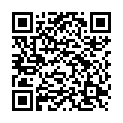|
|
|
| Module code: MAIM-221 |
|
|
4V (4 hours per week) |
|
6 |
| Semester: 2 |
| Mandatory course: yes |
Language of instruction:
English |
Required academic prerequisites (ASPO):
Written examination + term paper with presentation |
Assessment:
[still undocumented]
|
MAIM-221 (P420-0451) International Management, Master, ASPO 01.10.2012
, semester 2, mandatory course
|
60 class hours (= 45 clock hours) over a 15-week period.
The total student study time is 180 hours (equivalent to 6 ECTS credits).
There are therefore 135 hours available for class preparation and follow-up work and exam preparation.
|
Recommended prerequisites (modules):
None.
|
Recommended as prerequisite for:
|
Module coordinator:
Prof. Dr. Holger Buck |
Lecturer:
Prof. Dr. Holger Buck
Prof. Dr. Barbara Weitz
[updated 06.01.2016]
|
Learning outcomes:
The students
• are familiar with the important legal framework for international business
• understand the function and mechanisms of contract, competition and corporate law in international legal relations
• can work with the regulations in international agreements, EU law and various national laws independently and link them in compliance with the norm hierarchy
• understand the importance of the norms for the day-to-day life of an international corporation
• develop solutions for concrete cases and contracts from international business law by classifying the problem, subsuming the situation using the relevant provisions and then deriving a result
• create design proposals for international contractual und corporate practices
• acknowledge the result based on general legal value assessments.
[updated 06.01.2016]
|
Module content:
1. International Competition Law:
International competition law and territoriality principle; European and international industrial property rights; international conventions; market freedoms; EU cartel law with its references to national cartel law
2. International Contracts and Companies:
Contractual design and safeguards for international sales contracts; special features when working with especially important contracts; conflict resolution;
Company statutes and structures; corporate governance and compliance in globally active corporations; mergers; insolvency
[updated 06.01.2016]
|
Teaching methods/Media:
Interactive lecture based on practical examples and exercises
Visualization of keywords on a presentation board, transparencies
Learning material via Internet (graphs, diagrams, exercises)
Online exercises for researching international/European legal sources
[updated 06.01.2016]
|
Recommended or required reading:
-Annand, R.: Blackstone’s Guide to the Community Trade Mark, Blackstone, London, current edition
-Cook, T.: EU Intellectual Property Law, Oxford University Press, Oxford, current edition
-Dabbah, M.: International and Comparative Competition Law, Cambridge University Press, Cambridge, current edition
Fairhurst, J., Law of the European Union, Pearson, Harlow, current edition
-Gildeggen, R. & Willburger A.: Internationale Handelsgeschäfte, Vahlen, Munich, current edition
-Herdegen, M.: Internationales Wirtschaftsrecht, Beck, Munich, current edition
-Huber, P. (ed.): Rome II Regulation – Pocket Commentary, Sellier, Munich, current edition
- Jones A. & Sufrin, B.: EU Competition Law, Oxford University Press, Oxford, current edition
- Kilian, W.: Europäisches Wirtschaftsrecht, Beck, Munich, current edition
-Mo, J.: International commercial law. Butterworths, Sydney, current edition
Twigg-Flesner, C. (ed.), European Union Private Law, Cambridge University Press,
Cambridge, current edition
-Van Hulle, K. & Gesell, H. (eds.). European Corporate Law, Nomos, Baden-Baden, current edition
-Walz, R. (Hrsg.). Beck’sches Formularbuch Zivil-, Wirtschafts- und Unternehmensrecht Deutsch – English. Beck, Munich, current edition
- Yu, P.: International Intellectual Property Law and Policy, Carolina Academic Press, Durham, current edition
[updated 06.01.2016]
|


